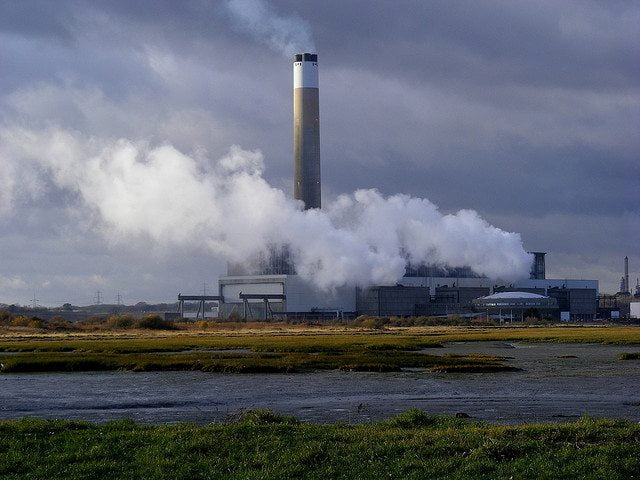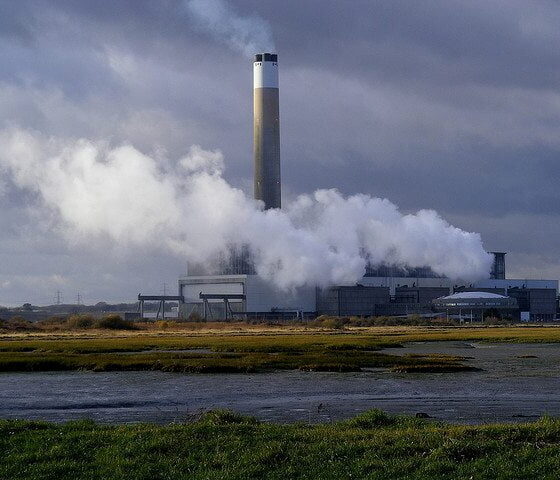

Economy
UK calls for changes to EU emissions system to boost low carbon investment
The UK government published reform measures in a blueprint on Wednesday, which are aimed at helping the EU Emissions Trading System (EU ETS) improve and encourage a more low carbon economy.
The EU Emissions Trading System (EU ETS) is the largest greenhouse gas emissions trading system in the world, which goes across multiple countries and sectors. It aims to help meet law enforced emission reduction targets in a cost-effective way.
It includes thousands of power stations and organisations such as universities, hospitals and aviation operators.
The EU ETS has a ‘cap and trade’ system, where limits are put on the total greenhouse gas emissions participants are allowed to emit. Tradable emission allowances allow the holder the right to emit one tonne of CO2 or equivalent.
There are phases of the ETS that are set to continue until 2021, with three phases having been delivered so far.
The EU ETS market currently has a surplus of over two billion allowances, which had led to some countries arguing this means low carbon investment is not encouraged.
Ed Davey, secretary of state for energy and climate change, said in a statement,“The UK is asking for bold and comprehensive reforms to restore the ability of the EU’s Emission Trading System to drive cost-effective emission reduction and low carbon investment.
“A glut of emission allowances on the carbon market has thrown the system off course. This is delaying the low-carbon investment that countries need now to meet long term targets, and thwarting the economic growth that these investments will bring.”
Some of the measures the UK government is considering are a cancellation of surplus allowances through the Market Stability Reserve (MSR), a revision of these allowances, still ensuring those who need support are protected, and cutting unnecessary red tape.
A spokesperson for Britain’s Department for Energy and Climate Change told Reuters the British government is considering another proposal, which would mean the MSR is introduced in 2017 before the proposed EU 2021 start date.
Photo: Gillian Moy via Flickr
Further reading:
Carbon budgets can be met but policies must be strengthened, advisers warn
Climate change damages in the EU could amount to €190bn – study
Climate change targets may not be enough to prevent 2C global warming
Study: climate change policies could have positive effect on UK economy


 Environment12 months ago
Environment12 months agoAre Polymer Banknotes: an Eco-Friendly Trend or a Groundswell?

 Features11 months ago
Features11 months agoEco-Friendly Cryptocurrencies: Sustainable Investment Choices

 Features12 months ago
Features12 months agoEco-Friendly Crypto Traders Must Find the Right Exchange

 Energy11 months ago
Energy11 months agoThe Growing Role of Solar Panels in Ireland’s Energy Future






























